試す 金 - 無料
Lands of the Gods
The Caravan
|January 2020
The colonial roots of the Ayodhya verdict

The decades-old Babri Masjid–Ram Janmabhoomi case has come to be the most intractable property dispute of our times. Most reports locate the starting point of the conflict at 1949, when Hindu idols were surreptitiously placed under the central dome of the Babri Masjid in the dead of the night. Years later, in 1984, the Vishwa Hindu Parishad started the Ram Janmabhoomi movement, mobilising Hindus across the country to build a temple on the disputed site. It ultimately led to the destruction of the mosque by mobs of kar sevaks—religious volunteers—in 1992, and communal bloodletting that left at least two thousand dead.
On 9 November 2019, a five-judge bench of the Supreme Court pronounced the eagerly anticipated final verdict on the resulting legal dispute. In a unanimous judgment, the court maintained that it had assessed the conflict primarily as a property dispute, or a title suit. “The dispute is over immovable property,” it stated. “The court does not decide title on the basis of faith or belief but on the basis of evidence. The law provides us with parameters as clear but as profound as ownership and possession.” Despite this exhortation, the court extended itself to hand over property rights over the entire disputed site to “Hindus,” on the premise that Hindu faith decreed that very site to be the birthplace of the epic hero Ram, who lived in the Ayodhya of the mythical Treta Yug.
The judges described the case as an “adjudicatory task of unique dimension
このストーリーは、The Caravan の January 2020 版からのものです。
Magzter GOLD を購読すると、厳選された何千ものプレミアム記事や、9,500 以上の雑誌や新聞にアクセスできます。
すでに購読者ですか? サインイン
The Caravan からのその他のストーリー
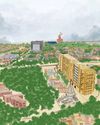
The Caravan
THE RSS DOES NOT EXIST
MAPPING THE HIDDEN STRUCTURE OF AN UNACCOUNTABLE ORGANISATION
3 mins
July 2025
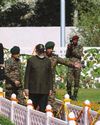
The Caravan
Wishing for a Hindu War
Modi's Pakistan policy bears Golwalkar's imprint
10 mins
July 2025
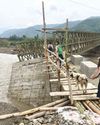
The Caravan
ROADS to RUIN
Megaprojects in the Northeast cannot make up for decades of neglect
27 mins
July 2025
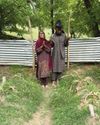
The Caravan
Four Deaths and No Answers in Kulgam
Kashmir police silences questions as bodies emerge from the Veshaw River
20 mins
July 2025

The Caravan
Tourism as Colonialism
The commodification of tribal lives in India / Communities
5 mins
July 2025

The Caravan
Someone Else's Problem
Waste and labour in urban South Asia
19 mins
July 2025

The Caravan
Priyamvada Natarajan: "The kick you get from making predictions"
A leading astrophysicist on supermassive black holes and her drive to do science / Science
17 mins
July 2025

The Caravan
MAKING A MEASURE
The history of the Human Development project
15 mins
July 2025

The Caravan
Foggy Slope to Armageddon
The first South Asian crisis of the third nuclear age /Conflict
7 mins
July 2025
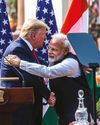
The Caravan
A United Front
What the Indian media gets wrong about Modi and Trump, and Modi and the world / Politics
9 mins
July 2025
